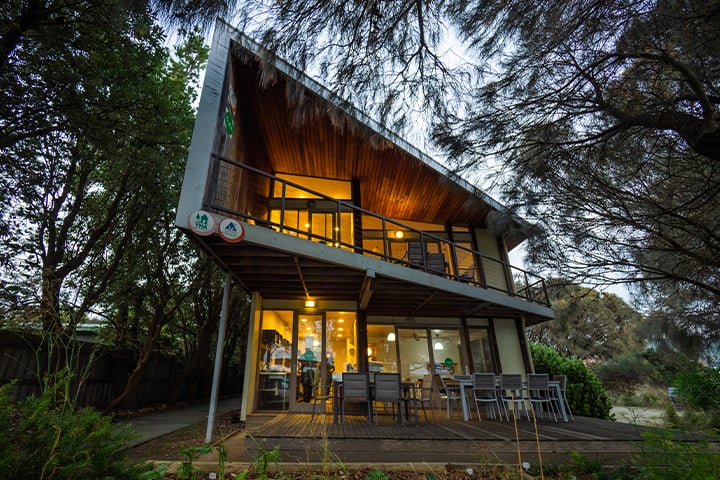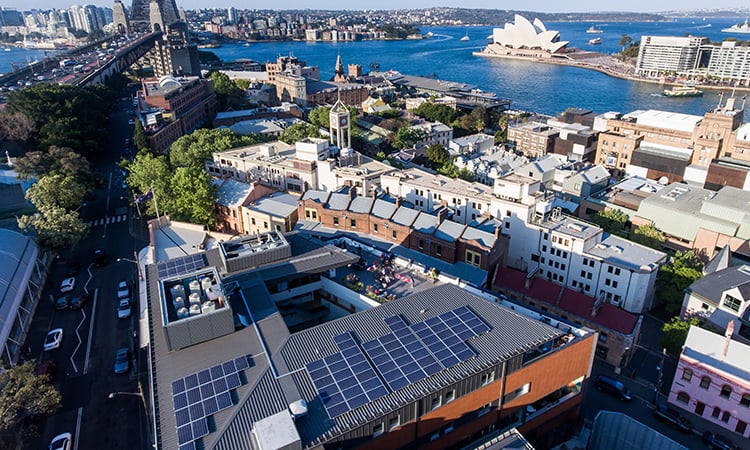7 reasons to visit the Great Ocean Road in winter
There are fewer people around

It’s a no-brainer that a good chunk of the population avoid leaving the house in winter – after all, who can be bothered dressing up all warm just to step out the door?
You, that's who! If you're made of sterner stuff than the typical sun-worshipping tourist and aren't liable to get cold feet at the first sign of a bit of nip in the air, now's your time to shine.
All those gorgeous lookouts you've seen in pictures? They're still there, even in the dead of winter, and they're refreshingly crowd-free, with the number of massive tour buses parked at every point of interest dramatically reduced. Practically speaking, this means no standing on your tippy toes to see over people’s heads at the Twelve Apostles, and no strangers in the background of your shot at Loch Ard Gorge. That’s a major win if you ask us.
You'll see rainforests at their best
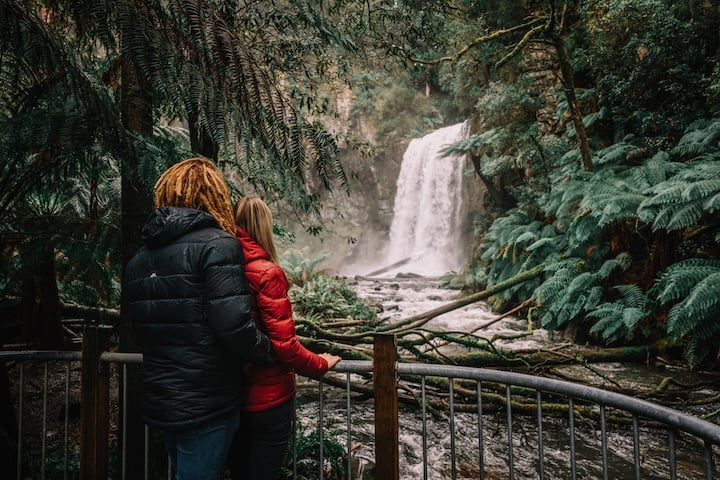
Image: Visit Victoria
The Great Ocean Road might be known for its dizzying ocean views and majestic rock formations, but there's plenty of beauty to behold on land along its length as well.
On its way west to the tourist-favourite Twelve Apostles, the road passes right through Great Otway National Park, a unique temperate rainforest ecosystem home to a plethora of native wildlife and some gorgeous waterfalls. During winter, the abundance of rain that hits this part of Victoria leaves the vegetation here at its most lush and swells waterfalls into raging torrents.
This is a great time of year to explore the National Park on one of its many walks and hikes, and if it happens to be raining, you'll usually be somewhat sheltered under the canopy of towering trees and ferns.
It's whale watching season
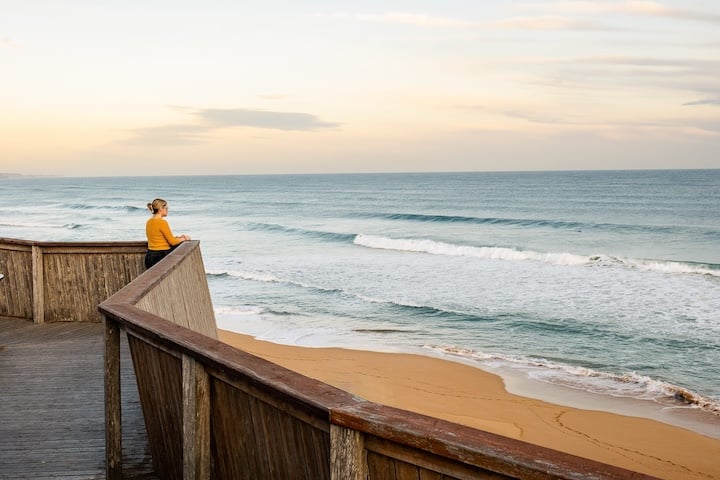
Image: Visit Victoria
Every year around winter time, migrating whales make their way north from Antarctica to warmer waters off Australia to breed and raise their calves. The general pattern in Victoria is this: humpback whales pass by before heading up the coast to Queensland, while southern right whales make the waters off the Great Ocean Road their nursery for the entire winter, often birthing and raising their offspring within a stone's throw of the shore.
From May to September, cast your eyes seaward anywhere between the Twelve Apostles and Portland to catch a glimpse of these majestic marine mammals. If you're really lucky, there's even the chance of an occasional blue whale (the largest animal on Earth) or rare pod of orca making an appearance.
You can sleep in and still catch the sunrise
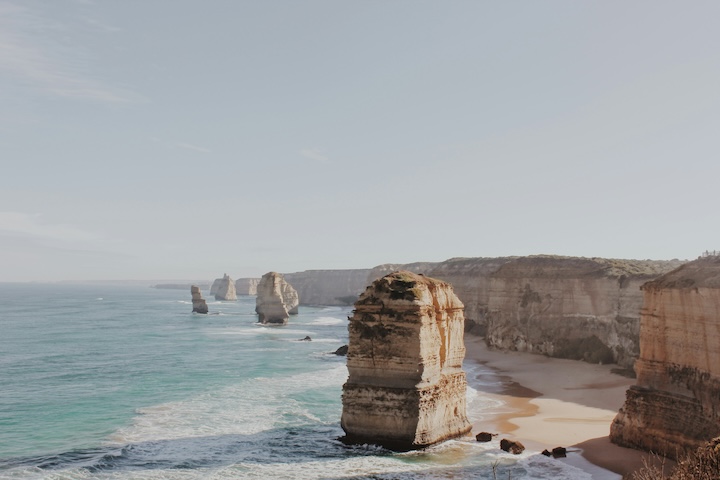
Seeing the Twelve Apostles at sunrise is an experience everyone should have at least once in their life, but waking up obscenely early to do so really takes the shine off it. Thankfully in the middle of winter, the sun rises a lot later than it does in the height of summer, meaning you can spend those extra hours rugged up and snuggly in bed. Plus, the potential for moody skies and dramatic seas in the colder season just means even more spectacular sunrise photos when you get there.
If you're staying at YHA Apollo Bay Eco here's a tip: it takes about an hour to drive to the Twelve Apostles, so make sure to leave yourself enough time to get a good vantage point for witnessing the spectacle.
There are winter festivities to enjoy
View this post on Instagram
The popular WinterWild festival is held in Apollo Bay each year in August and celebrates art, culture, music, theatre and well, winter in the Otways. Billing itself as a celebration of the 'dark arts', it shares a lot in common with Hobart's more well-known Dark Mofo festival, and features live performances, workshops and masterclasses with local creators and artisans, plus plenty of opportunities for culinary indulgement.
This vibrant festival tends to attract visitors from all over the state and beyond, so this is one time during winter when you may want to plan your visit and book well in advance.
Note – At the time of writing, this year's WinterWild hasn't yet been officially announced, so your mileage may vary.
It's perfect for cosy evenings by the fireside
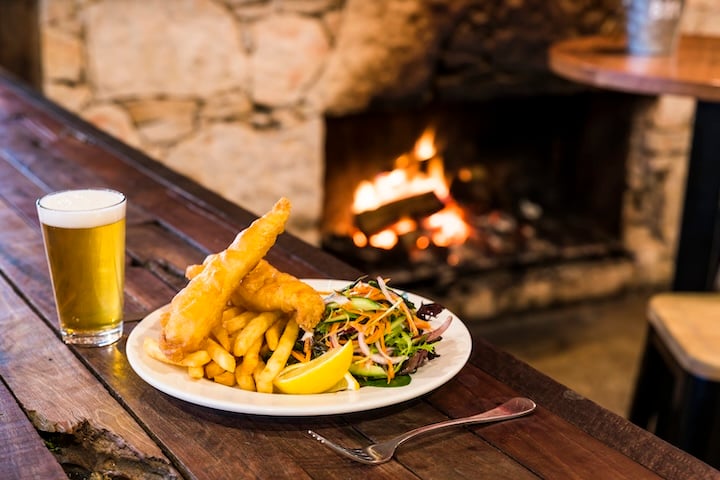
Image: Visit Victoria
Even though braving the cold is a huge part of the winter travel experience, the other side of the coin is the prospect of cosy fireside relaxation and hearty food and drink to compliment your outdoor escapades.
Whether it's a cooked breakast and coffee at Warrnambool's Bohemia Cafe and Bar, a stiff drink at Timboon Railway Shed Distillery or a delicious hot meal at the Great Ocean Road Brewhouse in Apollo Bay, this is a region full of opportities to treat yourself to scrumptious wintery fare, with more than a little of Melbourne's culinary fervour spilling over to this part of the state,
Even better for winter travellers, wood fires are a common feature in these parts (including at YHA Apollo Bay Eco), so you're likely to have somewhere toasty to put your feet up while you tuck in.
The price is right
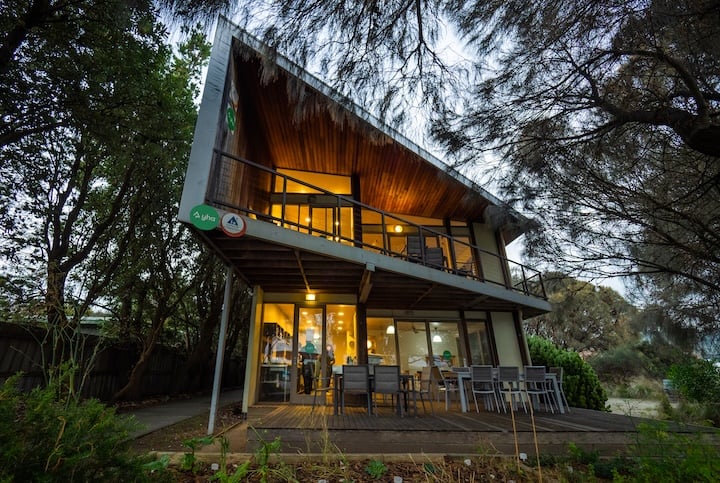
We'll let you in on a little trade secret (though you've probably figured this out by yourself). Traditionally thought of as the 'off-season' in this part of the country, with significantly fewer tourists, winter is easily the most affordable time to travel and stay along the Great Ocean Road.
That means your stay at the already reasonably priced YHA Apollo Bay Eco is even more so, lets your hard-earned travel budget take you further, and frees you up you enjoy yourself that little bit more on your visit to this beautiful bucket-list destination.
So what're you waiting for? Summer's overrated, and there's plenty of reasons the Great Ocean Road is just as great in winter. Start planning your road trip and thank us later!
Planning to see the Great Ocean Road? Book your stop off at YHA Apollo Bay Eco, with shared co-living, private, and family rooms all available.
Book direct and save
By booking direct with MyYHA you'll receive our exclusive discounted rates. Sign up or login to get 10% off at select properties.
Sustainability at YHA
Properties across our network feature energy-efficient and water-saving features like solar panels, rainwater tanks and recycling facilities.
